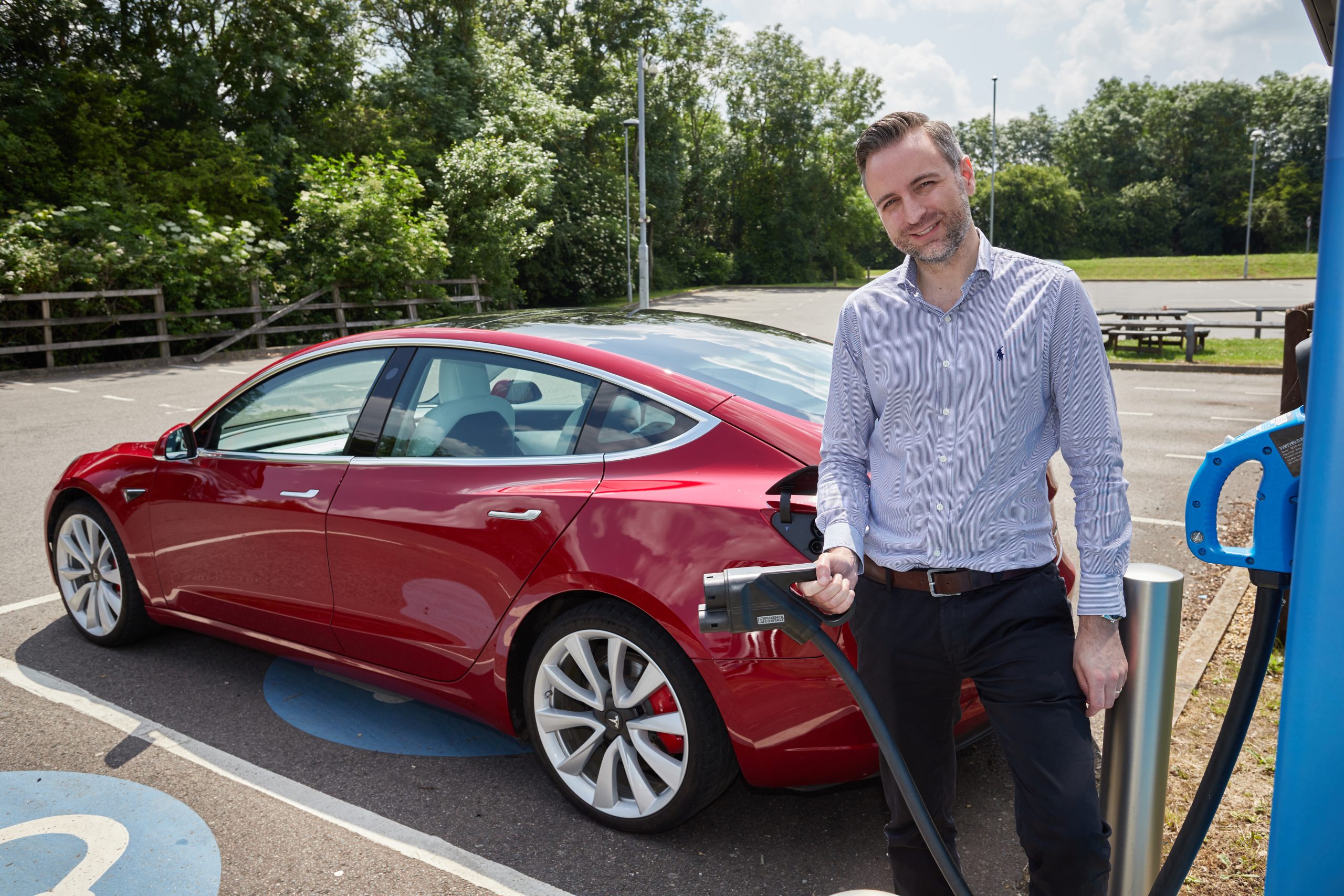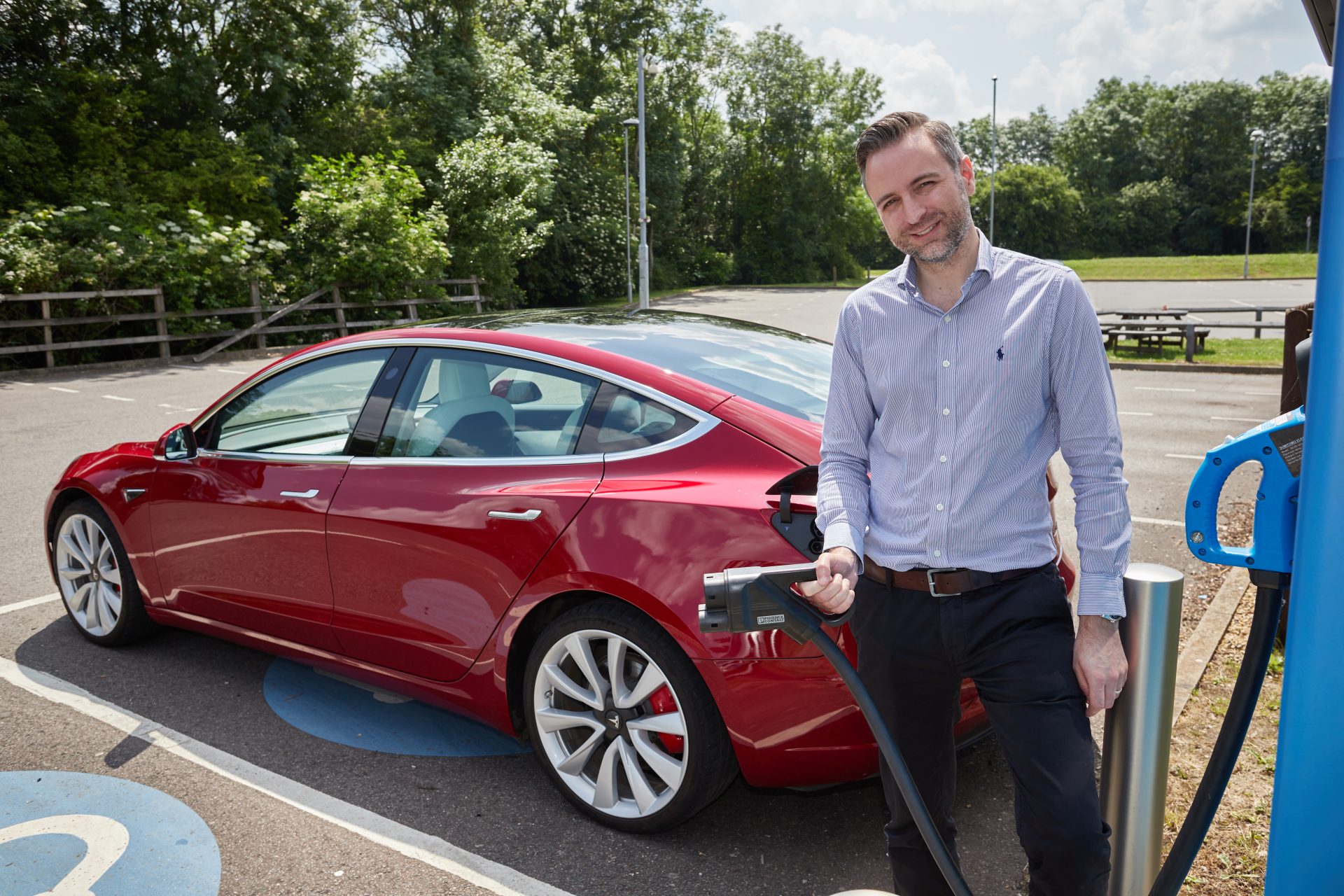4th November, 2021, Chris Goad
The pressure to be eco-friendly impacts every aspect of our lives and is also fast becoming the case with regard to the vehicles we drive.
In addition to helping the planet, and not having to queue at pumps, there are significant financial benefits to driving electric vehicles.
In 2019 Chris Goad, partner at Stephenson Smart’s Wisbech, March and Downham Market offices, made the decision to switch his company vehicle to a Tesla.
“It is most certainly the best decision I have made in terms of my business travel, but also my family travel, said Chris. “I think there’s quite a lot of misconception when it comes to buying electric vehicles. These include the expense of running one, the concern over charging points and the mileage ranges. The reality isn’t confusing or daunting.”
Tax benefits of owning electric vehicles
In April 2020 it was announced by The Treasury that it had introduced a zero Benefit In Kind tax rate for pure electric company cars in 2020/21.
The Government has also committed even further by keeping these rates low for company cars until March 2025, with the Benefit In Kind rate increasing to 1 per cent during 2021/22 and by 2 per cent in 2022/2023 - staying that way until 2025.
Zero emission cars are also exempt from Vehicle Excise Duty until at least March 2025.
These plans form part of a roadmap to end the sale of new diesel cars and vans by 2030, signalling some huge savings for all.
The roadmap also points out that companies and unincorporated businesses are eligible for enhanced capital allowances when buying a new zero emission car for business use.
This means 100 per cent of the cost of the car will be written off against the taxable income of the period in which it was purchased.
The benefits don’t just end with an electric car, there’s also now a taxable benefit for having the private use of a zero emissions van and if you fancy two wheels rather than four an electric bicycle will still qualify for the Cycle to Work Scheme.
This means it can be provided without Benefit In Kind arising, providing the rules are followed to comply with the scheme.
Charging electric vehicles
Mileage ranges have now increased with many new models offering a range approaching around 300 miles, putting any fears of not having enough fuel in the tank to bed.
To date there are more than 42,000 charge point connectors across the UK in over 15,500 locations, which equates to more public places to charge than petrol stations.
With the steady rise of charging points, more EV (electric vehicle) users are also choosing to install their own charging points at home.
After initial installation, it’s proving to be the cheapest time to recharge, and the most convenient.
Chris said: “I don’t ever worry about charging the car because I have a home charging point in my garage. If we are going on holiday I can easily find somewhere to charge using an ap called Zap Map, which is so easy to navigate.
“It can help you plan journeys and search for charging points so you haven’t got to worry about when or where you can stop. We have been to Cornwall in our EV and also into France and we just charged up along the way.”
Businesses can also do their bit for the grid too by signing up for Vehicle to Grid (V2G) technology, allowing an EV to be charged to store excess renewable energy production, which can be discharged to feed energy back to the electricity network when it is most needed.
And if you switch to a specialist electricity tariff while charging up at home off-peak, you could reduce your electricity bill from 12p-15p/kWh to 4.5p-5p/kWh at night.
Chris said: “A lot of people don’t initially consider the savings they could make with their electricity bills. As we charge up at home we switched to a new tariff, which gave us some massive savings.
“I think being educated and aware about electric vehicles is really important as we are moving towards a greener future. There are so many advantages to a business by making this type of investment, I certainly wouldn’t go back to diesel or petrol now.”
If you would like guidance on how switching to electric for company vehicles can help the environment, and your balance sheet, please get in touch.
Profile: Chris Goad BFP FCA


